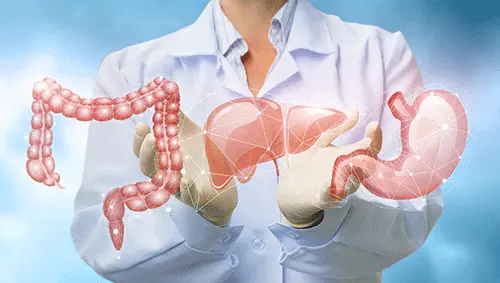Gastroenterology in Antalya | Get Rid of Your Stomachaches In One Session

Headlines

Gastroenterology in Turkey
In the course of our lives, we are exposed to a broad range of symptoms and pain levels, some of whose origins may not always be clear-cut. Thanks to Medgol Medical Tourism Center’s connections to the most skilled medical professionals in a range of medical subspecialties, your perplexing symptoms will happily no longer be a mystery. The diagnosis and treatment of disorders that may affect the digestive organs, such as the intestines, liver, and pancreas, are the primary goals of the medical specialty known as gastroenterology in Antalya. The digestive system is made up of many organs, including the esophagus, small intestine, colon, rectum, and anus. A gastroenterologist is a physician who diagnoses and treats digestive system problems. Numerous top gastroenterologists can be found in Antalya, making it a great place to go for stomachache treatment.
Gastroenterology in Antalya
People should schedule an appointment with one of our healthcare physicians or a gastroenterologist if they have pain like reflux, colic, heartburn, or trouble digesting meals. The latter will be able to determine the precise illness kind as well as the best course of action. You need to type “medgol” into Google’s search field when you’re in Turkey. Using this information, you may find the location of the best gastroenterologist Antalya has to offer. You may also get in contact with our counselors to have them arrange a consultation for you with one of Antalya’s top gastroenterologists.

When Should One See a Gastroenterologist
A visit to the gastroenterologist should be made as soon as possible if you are experiencing any of the following symptoms:
- Persistent abdominal pain: Most of the time, the underlying cause is treatable and not life-threatening. One of the potential causes in adulthood is irritable bowel syndrome (IBS); those who have it generally feel better after using the toilet. IBD, often known as inflammatory bowel disease, is a group of disorders that includes, among others, Crohn’s disease, ulcerative colitis, and endometriosis
- Vomiting red blood: If you have blood in your vomit, you likely have bleeding in your esophagus (the tube connecting your mouth to your stomach), stomach, or first small intestine segment (duodenum)
- Rectal bleeding: Make an appointment with your doctor as soon as you can if you have rectal bleeding that has persisted for more than one or two days or if the bleeding worries you. Even while the great majority of people who have rectal bleeding do not have cancer or any other severe conditions, it is crucial that they get it professionally examined
- Acid reflux: Acid reflux is a disorder that may arise when the sphincter muscle at the lower end of your esophagus relaxes at an inconvenient time. Acid from the stomach leaks backward into the esophagus as a result of this disorder. As a consequence of this, heartburn and other signs and symptoms may develop. GERD may develop as a result of frequent or ongoing reflux
- Intestinal occlusion: Potential causes of intestinal blockage include hernias, colon cancer, certain drugs, or strictures from an inflamed gut brought on by illnesses like Crohn’s disease or diverticulitis. Intestinal blockage may also result from adhesions, which are fibrous bands of tissue that grow in the abdomen after surgery
Cholelithiasis or Gallstones
The body’s organ responsible for gall creation and storage is the gallbladder (also called bile). This latter material is a digestive fluid that the liver secretes to help digestion. The body produces waste substances like bilirubin and cholesterol during the removal of red blood cells, and these substances are carried by this fluid. This operation has the potential to cause gallstone formation. Gallstones may vary in size from being no larger than a sand grain to being as big as a golf ball in certain circumstances. They don’t show any symptoms until they block a bile duct, at which time the patient feels agonizing pain and needs immediate medical attention.
Celiac disease
Consuming gluten is the main trigger of celiac disease, a long-term autoimmune condition that damages the digestive system. Diarrhea, bloating, and stomach pain are the hallmarks of this illness. Every person who has this sickness will experience its symptoms differently. The symptoms might affect other parts of the body than the digestive system.
While one patient may have diarrhea and stomach pain, another patient may experience mood swings like irritation or sorrow as a consequence of their illness. Celiac disease is a genetic illness that runs in families. A blood test may be used by the gastroenterologist to diagnose the condition. It’s probable that he’ll also need to look at some small intestinal tissue. Following the diagnosis, the treatment (Gastroenterology in Antalya) will include maintaining a gluten-free diet.
Medgol Medical Tourism Center; Gastroenterology in Antalya
Based on the underlying illness and the severity of the ailment, your gastroenterologist in Antalya will decide on the best course of treatment for you. The intensity and duration of diarrhea may be lowered by eating healthier foods. In addition, our medical experts may utilize adsorbent and intestinal protector pharmaceuticals, as well as intestinal transit-delaying medications, which slow down the contractions of the intestines. When you engage with Medgol Medical Tourism Center, you can be sure that only the best doctors, clinics, and hospitals in Antalya will be recommended to you.
You may be sure that you will get in touch with licensed medical specialists that can provide you with high-quality gastroenterology in Antalya at a reasonable price.